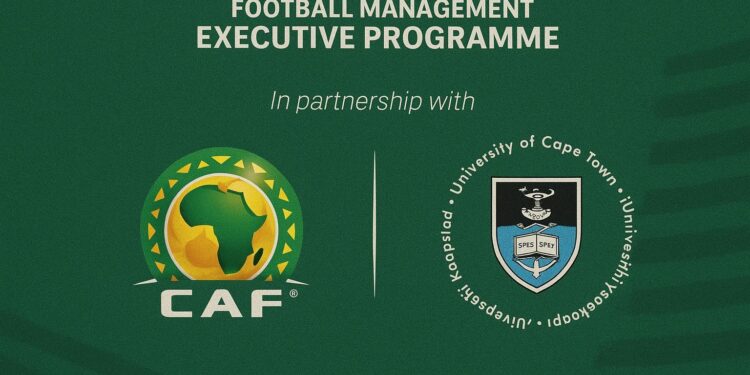Strategic Upskilling in African Football Governance
The decision by the Confederation of African Football to inaugurate a second cohort of its Executive Programme in Football Management reflects a continental pivot toward institutional maturity. Announced in a communiqué dated 20 July 2024, the initiative targets senior executives from CAF’s 54 member associations, many of whom balance complex domestic sporting ecosystems with increasingly demanding international obligations (CAF Press Release, 20 July 2024). By focusing on governance, commercial strategy, leadership and administrative rigour, the curriculum seeks to foster decision-makers capable of translating on-field flair into sustainable organisational architectures.
Sport-diplomacy specialists note that the timing aligns with global conversations on transparency and accountability in football management, notably those championed by the FIFA Forward Development Programme (FIFA Forward Report 2023). In an era where television rights, betting syndicates and social media influence can outpace regulatory frameworks, the CAF-UCT partnership is presented as a safeguard against governance deficits that have previously constrained African clubs and federations.
Cape Town–Cairo Axis of Academic Rigor
The academic anchor of the programme, the University of Cape Town Graduate School of Business, brings a research-oriented perspective to a field often dominated by anecdotal expertise. According to the school’s internal bulletin published in May 2024, teaching modules will weave case-study analysis with scenario planning, allowing participants to stress-test policy options before they are applied on home soil (UCT GSB Bulletin, May 2024). The hybrid format combines residential blocks—first at CAF headquarters in Cairo, then at a yet-to-be-named African city—with synchronous online seminars that accommodate executives’ congested calendars.
African scholars of managerial science argue that embedding continental case studies into a globally benchmarked syllabus can curb the reflex to import solutions unfit for local contexts. This localisation imperative has been echoed by CAF President Patrice Motsepe, who insists that African football’s competitiveness depends not only on athletic prowess but on the intellectual capital of its administrators (Motsepe Address to CAF General Assembly, Addis Ababa, March 2024).
Regional Diplomacy and Soft Power Through Sport
For many ministries of foreign affairs, football is an instrument of soft power as consequential as traditional cultural diplomacy. The selection of executives from Central Africa, including the Republic of Congo, underscores Brazzaville’s aspiration to position itself as a responsible stakeholder in continental sporting affairs. Congolese officials contend that well-managed federations attract foreign direct investment, bolster tourism and provide a unifying national narrative that can transcend partisan divisions (Ministry of Sports, Brazzaville communiqué, April 2024).
Foreign diplomats stationed in the region interpret the CAF initiative as a laboratory for regional cooperation. Cross-border exchange within the cohort may set the stage for joint bids to host future youth tournaments or club competitions, thereby deepening infrastructural integration. Such collaboration resonates with the African Union’s Agenda 2063, which frames sport as a lever for pan-African solidarity.
Implications for Congo-Brazzaville’s Sporting Agenda
In Brazzaville, where the government has declared sport a ‘priority sector’ within its National Development Plan 2022-2026, participation in the CAF programme is portrayed as a conduit for sharpening domestic reforms. A senior official at the Congolese Football Federation, speaking on condition of anonymity, notes that previous attempts to professionalise local leagues stalled due to gaps in financial oversight and long-term marketing strategies. “The exposure to best practices from North and Southern Africa can only expedite our internal modernisation,” the official asserts.
By 2026, the year slated for the programme’s graduation ceremony in Cape Town, Congo-Brazzaville aims to unveil a revamped national league licensing framework premised on audited accounts and youth-academy quotas. Observers in Pointe-Noire suggest that tangible deliverables—enhanced stadia management, equitable broadcasting contracts, transparent player transfers—will be the true measure of the initiative’s efficacy.
Toward a Sustainable Continental Football Ecosystem
Critics who once doubted CAF’s capacity to deliver systematic capacity-building now recognise a gradual but perceptible shift. The inaugural edition of the executive programme, which concluded in early 2024, saw alumni occupying new leadership roles in at least nine member associations within twelve months of graduation (CAF Alumni Tracking Survey 2024). Early data suggest improvements in budget execution rates and sponsorship revenue, hinting that administrative competence can convert into measurable financial resilience.
Looking ahead, analysts caution that educational interventions must be followed by rigorous monitoring. CAF has declared its intent to assemble an oversight panel, comprising academics and retired administrators, to evaluate the implementation of graduates’ action plans every six months. Should this feedback loop mature, it could provide a template for other regional confederations grappling with similar governance challenges.
The symbolism of concluding the programme in Cape Town carries weight. South Africa’s modern stadia, legacy of the 2010 FIFA World Cup, contrast with the infrastructural deficits still evident elsewhere on the continent. By inviting participants to graduate in a venue emblematic of African ambition realised, CAF reinforces a narrative of incremental but attainable progress.
Ultimately, the executive programme situates African football governance within a broader matrix of economic diplomacy, youth empowerment and nation-branding. If the anticipated gains materialise, the continent may witness a transition from episodic heroic victories on the pitch to a more enduring architecture of success off it—a transformation likely to capture the attention of both investors and policymakers seeking reliable partners in the global sports economy.












































